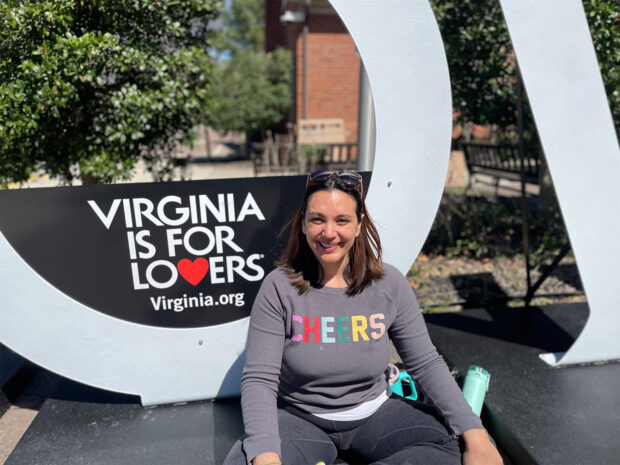
Kristl Tomlin ’05 moved her pediatric and adolescent gynecology practice to Virginia from South Carolina because of that state’s restrictive laws on reproductive rights.
Kristl Tomlin was featured in a pair of New York Times opinion pieces as a “reproductive rights refugee.”
Tomlin, a pediatric and adolescent gynecologist, explained in an article and a separate podcast how the restrictive abortion and contraception laws in South Carolina tragically affected her ability to care for her young patients and forced her to move to another state. She left behind a rewarding practice of seven years in Columbia and a faculty position at the University of South Carolina.
In the post-Roe v. Wade world, 13 states have enacted abortion bans and restricted access to contraception. In South Carolina, abortions at the time were allowed up until a fetal heartbeat was detected by ultrasound, usually about six weeks, with extra time given to victims of rape and incest at 13 weeks.
Tomlin told The Times about two abortions she performed: one for a 12-year-old girl raped at a party by a 15-year-old boy, and a 13-year-old girl who was kidnapped off the streets and repeatedly assaulted.
“There was no ambiguity about it being rape,” Tomlin said. As long as she followed the onerous steps and timelines set up by the state’s Fetal Heartbeat and Protection from Abortion Act, signed into law in May 2023, Tomlin and the lawyers advising her employer thought it would be OK.
But when Tomlin reported the first abortion to law enforcement and the health department, it became clear that it wasn’t. After she gave the required information, the voice on the phone asked a lot of personal questions about the patient and about the doctor herself.
When she reported the second procedure, she was told that a uniformed deputy would be dispatched to the clinic “to talk to her.”
“Oh no you won’t,” Tomlin replied.
“They seemed emboldened to treat me like a criminal,” she told The Times. “And even when an abortion ban has rape and incest exceptions, it is exceedingly difficult to execute them.”
The tightening restrictions in the state laws regarding reproductive rights began almost immediately after the U.S. Supreme Court overturned the constitutional right to abortion in June 2022 with the Dobbs v. Jackson Women’s Health Organization. Many women’s health centers, including abortion clinics where women had often gotten their birth control, closed after the Dobbs decision.
“The week Dobbs was handed down, a 15-year-old was brought to my office for contraception,” Tomlin said. “There was a lot of fear about whether birth control was illegal, and there was a lot of confusion. The girl was crying, her mother was crying, and the grandmother was crying and said, ‘My granddaughter has fewer rights than I did. What kind of world is this?’”
Tomlin, her husband Hayden and their two daughters packed up and moved to a more lenient health care state, Virginia. Since August 2024, she has been in private practice in Norfolk and is an associate professor of pediatrics and obstetrics and gynecology at Old Dominion University.
“We have been here a whole school year, but haven’t settled in yet,” Tomlin said. “And we all miss our house, the wrap-around front porch, the yearly St. Patrick’s Day parties and the community.
“But I was forced to leave South Carolina so that I could continue to help girls and women,” she said. “It got to the point where it was intolerable and unsafe.”
Women and girls can travel to other states for abortions if they can afford it. But penalties in their home states for that are severe.
“We tend to think regionally, and some might say of the abortion bans, well that’s how they do things in the South,” she said. But the ideas are spreading.
“You might live in California or Maine, but you may not have the rights you think you have for much longer.
“Reproductive health care has never been more vulnerable,” Tomlin said. “The reality is that there are very scary restrictions proposed every day all across the U.S. People need to wake up and fight the fight.”

